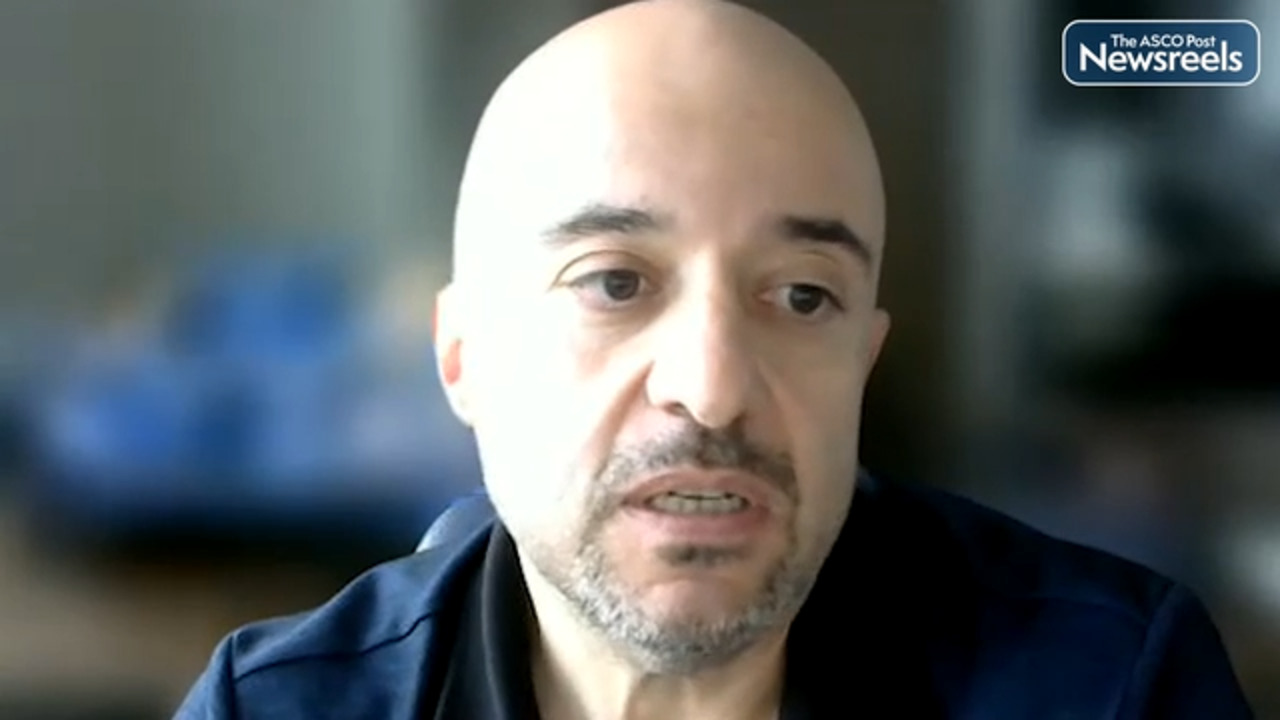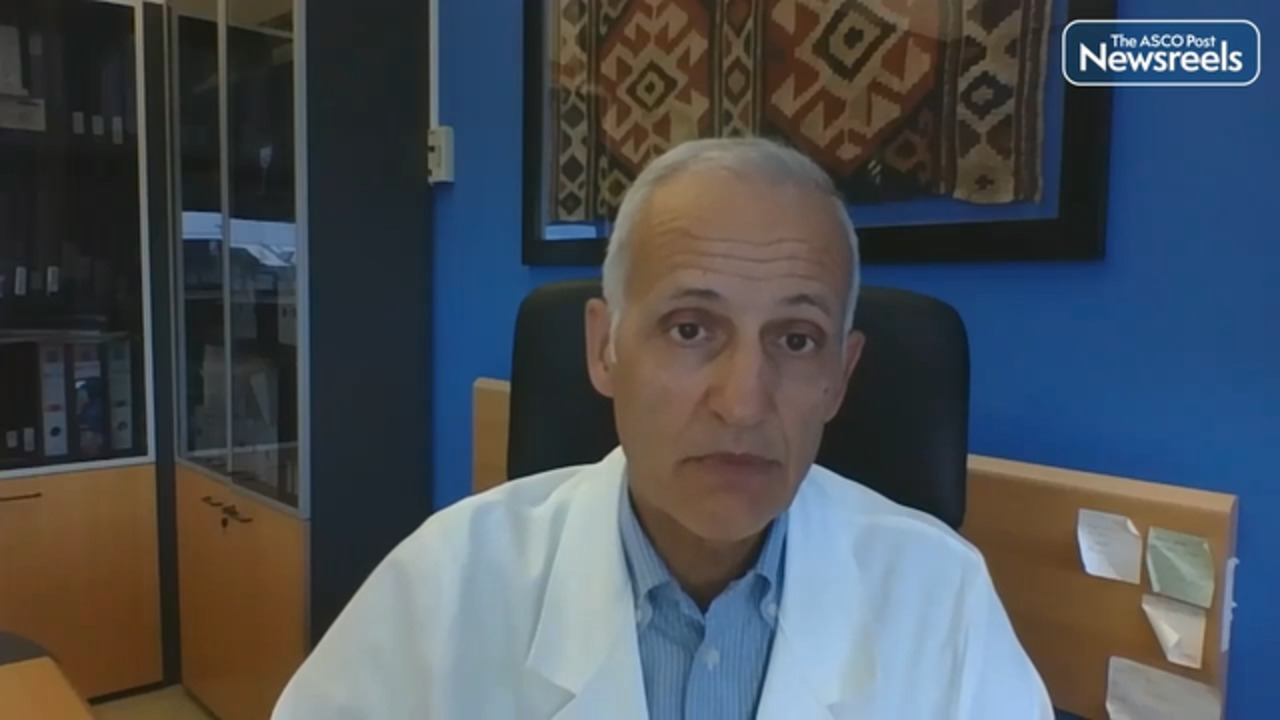Addition of Durvalumab to BCG After TURBT for BCG-Naive, High-Risk NMIBC

In the final analysis of the phase III POTOMAC trial reported in The Lancet, De Santis et al found that the addition of durvalumab to bacillus Calmette-Guérin (BCG) induction and maintenance improved disease-free survival in patients with high-risk non–muscle-invasive bladder cancer (NMIBC) who underwent transurethral resection of bladder tumor (TURBT).
Limited or No State Regulation of STLD Health Plans Linked to Decreases in Timely Cancer Treatment Initiation

In 2018, the federal government expanded the coverage duration of short-term limited-duration (STLD) health plans from 3 months to less than 12 months, with the option to renew for a total duration of up to 36 months. Some states imposed more stringent regulations than those federally imposed or banned the sale of these STLD plans, while other states did not have any additional regulations.
Regulatory Agencies Establish Principles of Good AI Use in Drug Development

The U.S. Food and Drug Administration's (FDA) Center for Drug Evaluation and Research (CDER) and Center for Biologics Evaluation and Research (CBER) have collaborated with the European Medicines Agency (EMA) to develop a set of 10 guiding principles for good uses of artificial intelligence (AI) in drug development. The principles are aimed at industry members and product developers who are using AI to facilitate and accelerate drug/biological product development.
Intensity-Modulated Proton vs Photon Radiotherapy in Oropharyngeal Cancer

In a prespecified interim analysis of a phase III trial (University of Texas MD Anderson Cancer Center Clinical Trial Consortium trial) reported in The Lancet, Frank et al found that intensity-modulated proton therapy (IMPT) was noninferior to standard intensity-modulated photon radiation therapy (IMRT) in progression-free survival among patients with stage III or IV oropharyngeal cancer.
Global Cancer Survival Gaps Assessed Using a Country-Level Machine-Learning Framework

A machine-learning model has calculated country-specific cancer mortality-to-incidence ratios and evaluated the factors that contribute the most to each country's survival gaps. Additionally, the artificial intelligence (AI) tool mapped out actions each country could take to improve cancer outcomes. A report explaining the establishment of the machine learning framework and its country-specific findings was published in Annals of Oncology.
Sponsored Content

SPONSORED BY JOHNSON & JOHNSON
Evolving Treatment Landscape in First-Line EGFR-Mutant NSCLC: New Insights Into Combination TherapiesMore Top Stories
A Battle With My Blood
Editor’s note: On November 22, 2025—the 62nd anniversary of her grandfather President John F. Kennedy’s assassination—Tatiana Celia Kennedy Schlossberg published an essay in The New Yorker detailing her diagnosis of acute myeloid leukemia with chromosome 3 inversion, a rare and aggressive subtype...
A Paradigm Shift In Treating Adult AML?
The scientific revolution in determining the genetic basis of cancer is finally bearing fruit in hematologic neoplasms such as acute myeloid leukemia (AML), where over the past decade a number of effective new drugs have expanded our armamentarium and provided effective—and in some cases...
New ASCO Guideline Addresses Management of Cancer During Pregnancy, From Diagnosis Through Survivorship
A new ASCO guideline provides recommendations on managing cancer during pregnancy, addressing a range of topics from the selection and timing of diagnostic testing and therapeutic interventions to delivery planning and ethical and legal considerations.1 The guideline aims to inform evidence-based...
Novel HER2-Targeted Bispecific Improves Outcomes in Patients With Gastroesophageal Cancer
In patients with advanced HER2-positive gastroesophageal adenocarcinoma, treatment with the bispecific antibody zanidatamab-hrii and chemotherapy, with or without the PD-1 inhibitor tislelizumab-jsgr, reduced the risk of disease progression or death by 35% over trastuzumab plus chemotherapy in the...
Lymph Node Examination Should be Expanded to Accurately Assess Metastasis in NSCLC, Research Says
Breakthrough research presented at the 2026 Society of Thoracic Surgeons (STS) Annual Meeting shows that additional lymph node evaluation is needed during surgery for non–small cell lung cancer (NSCLC) to accurately identify cancer spread (Abstract A-1588). Globally, surgical standards vary on the...
Deb Schrag, MD, MPH, FASCO, Elected 2027–2028 ASCO President
Deb Schrag, MD, MPH, FASCO On December 19, 2025, ASCO announced its members had elected Deb Schrag, MD, MPH, FASCO,as President for the 2027–2028 term. Dr. Schrag will begin her term as President-Elect upon the conclusion of the 2026 ASCO Annual Meeting. Dr. Schrag, a gastrointestinal...
FDA Provides Safety Labeling Update for Capecitabine and Fluorouracil on Risks Associated With DPD Deficiency
The U.S. Food and Drug Administration (FDA) has provided communication to increase awareness of recent updates to the product labeling of capecitabine (Xeloda) and fluorouracil—indicated for colorectal, breast, gastric/esophageal/gastroesophageal, and pancreatic cancers—related to risks associated...








